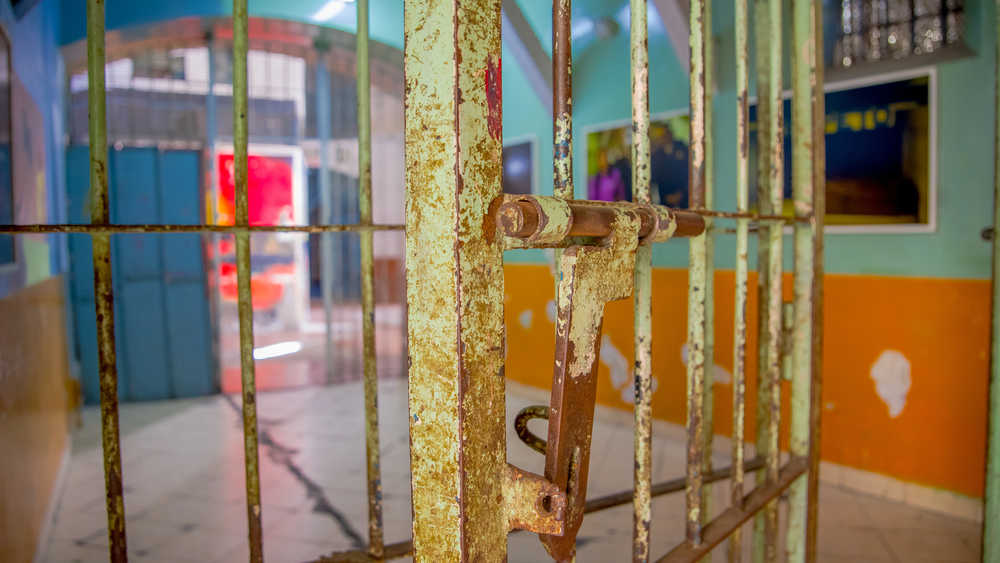The World Health Organization declared the outbreak of Covid-19 as a pandemic in March 2020. Everyone around the world experienced a ‘house arrest’ (lockdown) for months. But things were different for prisoners. The prisons were overcrowded, making prisoners particularly vulnerable to Covid-19.
According to 2019 National Crime Records Bureau data, 1,350 prisons in India have a combined capacity of 4.03 lakh people, but house 4.78 lakh prisoners. The Justice A. Roy Committee report stated that the total prison population in India increased by 8.2 per cent against a rise of 0.7 per cent in the sanctioned capacity of prisons between 2016 and 2018. In its order dated March 23, 2020, the Supreme Court said, “The bitter truth is that our prisons are overcrowded, making it difficult for prisoners to maintain physical distancing... like any other viral disease’s susceptibility of Covid 19 is greater in over-crowded places, mass gatherings…”
It instructed states and Union territories to decongest prisons. The direction was to constitute a ‘High Powered Committee’ to ascertain categories of prisoners to be released either on bail/parole or furlough. Finally, it was decided to set free prisoners convicted for one offence or imprisoned for less than seven years.
Delhi, Karnataka and Chhattisgarh implemented the directive proactively. An HPC was formed in Bihar but no data on meetings were provided. Fifty eight prisons in Bihar had 39,814 prisoners with an occupancy rate of 93.4 per cent. According to the Commonwealth Human Rights Initiative’s ‘Covid-19 State-wise Response’, the Bihar government’s estimate of the release of undertrial prisoners was zero. Later on, 413 such prisoners were ‘released’: the state government transferred undertrial prisoners from one jail to another.
During the pandemic, we visited the Beur Central Jail in Patna as well as four other sub-jails to find that not a single prisoner had been released. Prisoners in Beur Central Jail were transferred to prisons in Samastipur, Jehanabad and Bhagalpur. Family members found it difficult to travel so far and several bail applications could not be filed because of the transfer of prisoners.
But it would be unfair to blame only the prison authorities. The role of courts needs to be scrutinized as well. Almost 14,000 bail applications were filed in different trial courts, out of which a large number of applications were rejected because case documents were not available. Several undertrial prisoners languish in jail for periods that are longer than the terms of imprisonment. Some prisoners had been granted bail but they could not be released on account of irregular court services. Marginalized undertrial prisoners are landless and have no money to pay as surety. They were not given the benefit of such provisions as personal recognizance bail bond. We took up the matter with the Chief Justice of Patna High Court. An order was issued in this regard: undertrial prisoners who are destitute or mentally challenged must be released on the PR bail bond.
But the prisoners who received bail faced formidable socio-economic challenges. Their criminal history made it difficult for them to be rehabilitated and reintegrated into society. They had no source of livelihood to support their family.
On analyzing this pitiable situation, we prepared a list of families that were in dire need. We drafted a proposal and had it mailed to the Azim Premji Philanthropic Initiatives, mentioning our objective and presenting a blueprint on how to assist marginalized undertrial prisoners during the pandemic. We soon received an email confirming that the APPI was ready to finance our initiative. In collaboration with the Bhartiya Jan Utthan Parishad, we were able to reach out to more than 150 families of undertrial prisoners, providing them with ration kits and, more importantly, a glimmer of hope.
There is no legislation that empowers prisoners to secure decent jobs after they leave prison. Their voices are rendered inaudible to the government and most of them suffer in silence. In spite of the fact that several directions have been passed and appropriate guidelines framed to ameliorate the conditions of prisons, affirmative actions are yet to be taken. It is high time that the recommendations on jail reforms are accepted and implemented.











